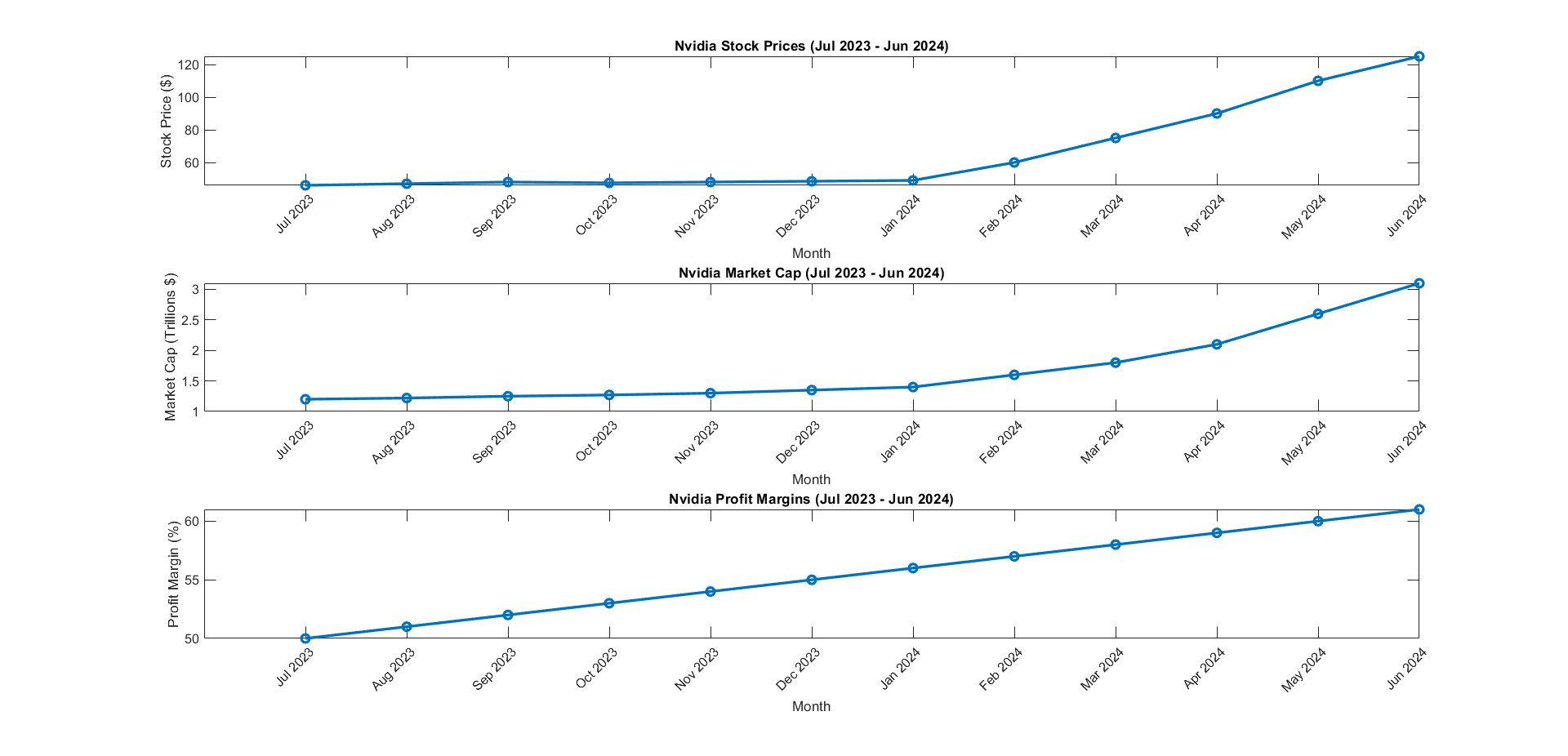In a remarkable journey since August of last year, Nvidia’s stock has seen an extraordinary rise, multiplying its market cap to over $1.2 trillion. This unprecedented surge, marking the largest short-term valuation leap in capital market history, has pushed Nvidia’s price-to-earnings (P/E) ratio based on GAAP earnings to exceed 100.
Skyrocketing Valuation: Unprecedented Growth
A year ago, analyses suggested Nvidia’s stock was significantly overvalued. To justify this surge and provide reasonable returns to investors over the next seven years, Nvidia would need to grow its earnings by more than 22% annually—a daunting target given the anticipated margin reductions and growing competition.
David Trainer, CEO of New Constructs, likened Nvidia’s situation to Tesla’s post-profitability phase, where competitors eroded margins and sales growth slowed. Trainer remarked, “Nvidia’s valuation is ridiculous. It’s facing the same curse as Tesla.”
Nvidia’s Explosive Performance in 2024
Despite these concerns, Nvidia’s shares held steady between $46 and $49 from July 2023 to early January 2024. However, following blockbuster earnings for Q4 of FY 2024 and a strong Q1 performance, Nvidia’s stock catapulted.

CEO Jensen Huang’s announcement of a 10-for-one stock split and a 150% dividend increase further fueled investor enthusiasm. Huang also introduced Nvidia’s next-gen GPU chip, expected to drive significant revenue later in the year, promising “the next wave of growth.”
Between early January and June 12, Nvidia’s market cap surged by 160% to $3.10 trillion, as its share price soared from $48 to $125. This incredible growth added $1.90 trillion in market cap, surpassing last year’s gains and propelling Nvidia to become the world’s third most valuable company, trailing only Apple and Microsoft.
The High Bar for Future Performance
Despite its stunning performance, Nvidia’s rapid valuation increase poses a significant challenge for future investors. The current valuation necessitates substantial performance metrics to provide shareholder returns.
For Nvidia to offer a 10% annual return over the next seven years—a reasonable expectation given its high-risk profile—profits would need to increase by 25% annually, reaching around $200 billion in seven years.
To put this in perspective, achieving $200 billion in profits would require Nvidia to outpace the combined profits of tech giants like Microsoft and Alphabet.
This goal appears increasingly unattainable, given Nvidia’s current profit margins, which are significantly higher than those of its peers. Maintaining such high margins while competitors enter the market is highly unlikely.
Trainer’s Analysis: A Reality Check
Trainer’s updated analysis paints a daunting picture. To justify its current valuation, Nvidia would need revenues of $3 trillion—equivalent to the GDP of India—15 years from now, and profits of $1.1 trillion, over ten times Apple’s current profits.
Trainer emphasizes that such inflated valuations are unsustainable as competitors inevitably emerge, reducing margins and profits.
Conclusion: A Risky Proposition
While Nvidia’s leadership in AI and remarkable growth trajectory are undeniable, its current valuation presents a significant risk for investors. The bar for future performance is set extraordinarily high, making it challenging for Nvidia to deliver the returns required to justify its market cap.
As Nvidia continues to innovate and expand, it remains to be seen whether it can sustain its profitability and market dominance in the face of increasing competition. For now, despite its potential for fabulous profitability and growth, Nvidia could prove to be an extremely poor investment at its current valuation.
By thoroughly analyzing Nvidia’s remarkable rise and the challenges it faces, we offer a nuanced perspective for investors considering this high-flying stock. For more insights on market trends and investment strategies, visit ImpactWealth.Org.

















